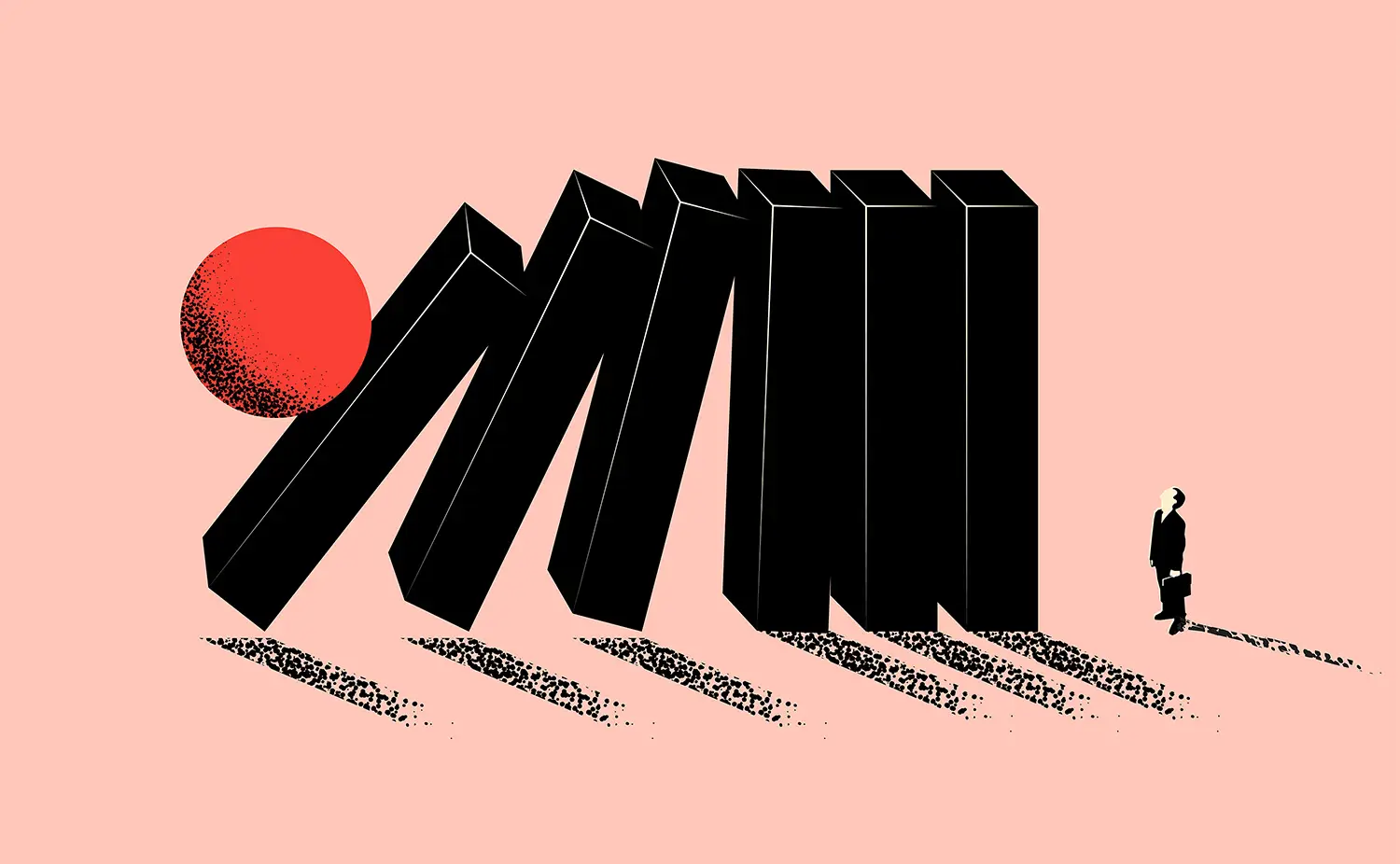Note: Lerner CRC does not provide divorce therapy services.
Lerner CRC can refer clients to Licensed Marriage and Family Therapists throughout Orange County
Why Choose Divorce Therapy?
Ending the marriage can be traumatic for both partners regardless of the reasons behind the breakdown of the relationship. Divorce is invariably physically, mentally, and financially draining, especially when you are involved in divorce litigation. You may choose to begin therapy to better cope with this situation. In general, divorce therapy involves one-on-one sessions. People going through a divorce tend to feel depressed, anxious, fearful, or guilty, and therapy can help in this condition. You can attain a rational and goal-oriented perspective on things by working with a qualified divorce therapist. You can arm yourself with the skills required to work through the innumerable difficulties of getting divorced. People working with divorce therapists are better equipped to handle mental strains. You may learn more about yourself and the imminent changes the divorce will bring. You can learn to channel the changes towards personal growth and development.
Types of Divorce Therapy
Individual therapy Divorce is known to contribute to different types of mental health conditions, including anxiety and depression. Many people incorrectly perceive divorce as a personal failure. You can work through such feelings and make better sense of the divorce through therapy. You may find it helpful to gain a fresh perspective on things. In fact, many people attain a deeper knowledge of themselves and learn about their needs and dislikes after getting divorced.
Couples therapy You and your spouse can choose to get couples’ therapy. This type of divorce therapy is aimed at facilitating a constructive and healthy divorce. The divorce therapist can act as a mediator and allow for conversations to flow in a supportive and respectful environment. The therapist can ensure that you and your spouse look at the divorce from different angles and prevent a lasting negative impact. Divorce therapists are experienced in making sure that couples address pertinent issues. This can include financial obligations, living arrangements, and parenting plans.
Family therapy Therapy is not just important for a divorcing couple, but their children too. Parents can often allow their feelings to consume them during a divorce. They may overlook or choose to ignore the fragile emotional state of their children. This is when the children are in all likelihood blaming themselves for the divorce. Divorce can make children feel guilt, confusion, pain, abandonment, and a deep sense of loss. Children are often unsure about where to place their loyalty. They may worry about taking sides and choosing one parent over the other, which may lead to many sleepless nights. They may even consider themselves the cause of the divorce, which can begin to affect their grades and emotional state. Parents that are aggressive towards each other may cause their children to feel even more confused, anxious, and fearful. A child that overhears their parent argue about custody may start to feel unwanted. They will most likely blame themselves for the separation. Family therapy creates a safe and supportive environment where all family members are allowed to voice their concerns and share their feelings. Family therapists can help everyone adjust to the changing circumstances and process their emotions.
Cognitive-Behavioral therapy (CBT) Cognitive-behavioral therapy (CBT) is a widely used divorce counseling approach in the United States. It combines cognitive therapy with behavioral therapy to allow patients to see how their beliefs and thoughts impact their mood and actions. In short, CBT can teach you to recognize your unhealthy and negative thought patterns and behaviors. Your therapist will also teach you ways to stop the negative thought patterns and change them. CBT works on the belief that people can change once they become aware of the impact their destructive thoughts have on the different aspects of their life. You can change your thoughts and behavior to fit a more realistic reflection of the overall situation. Alternative therapy There are several types of alternative divorce therapy that can be used for complementing CBT. These therapies are designed to ease sadness while allowing the patient to cope with the pain of separating and getting divorced in a healthier manner. These are few alternative therapies used:
- Art therapy
- Movement therapy, such as yoga or exercise
- Music therapy
- Deep breathing
- Meditation and mindfulness
Importance of Pre-Divorce Counseling
A divorce therapist can play an essential role in teaching you and your partner to behave in a civil manner and effectively communicate with each other. The divorce counselor will help you cope with the financial, emotional, and physical stress accompanying the divorce. You and your spouse can have a deeper understanding of the reasons for divorce and whether you really want one. In short, pre-divorce counselors help couples determine whether their marriage can be saved, and if not, how to best deal with the circumstances. It’s vital that you focus on keeping things classy if children are involved. You and your spouse cannot have screaming matches in front of the children if you want to avoid leaving lasting damage on their fragile mindsets. Children should not be put through a disrespectful divorce where they undergo blame games and name-calling. The best way of minimizing the trauma inflicted and safeguarding the well-being of your children is to be civil towards your ex. Pre-divorce therapists can be helpful by addressing all divorce-related parenting issues. They can also give you tips on telling your children about the imminent divorce so that you can minimize their emotional pain and trauma. Pre-divorce counseling can also be beneficial towards identifying and addressing any confusing or conflicting emotions related to the divorce. This form of counseling can help you learn different coping strategies that can be applied to stressful and challenging experiences.
Importance of Post-Divorce Counseling
The dissolution of a committed and long-term relationship is enough fuel to disrupt your life and trigger intense emotions, such as grief, stress, and sadness. There is immense truth in the fact that “life after divorce” can often feel heavy and confusing. An uncertain future is always more daunting to people than being embroiled in a deeply unhappy and unsatisfying relationship. Post-divorce counseling is aimed at guiding an individual through the aftermath of their break-up and divorce. Divorce counselors employ a variety of techniques to improve the confidence and self-esteem of their patients. They can help you reclaim your life by accepting reality. Divorce therapists can also help you productively deal with any residual feelings left after divorcing your ex. When you speak with a divorce counselor, you can give voice to your feelings and provide a release for them. They don’t need to remain bottled up inside of you anymore. You can manage your emotions in a healthy way. People that get divorced after being married for several years can find it difficult to come to terms with the divorce and discover who they are outside of the marriage. This is where post-divorce counselors become useful. Your divorce therapist will help you re-discover your true identity so that you can eventually embrace a new life and move on from the previously unhappy one.
Why Choose Divorce Counseling?
Some people can successfully navigate their divorce on their own despite the seemingly endless uncertainty and pain involved. In relation to this, for most other people, the divorce experience can be crippling. They may become overwhelmed with the feelings of sadness, guilt or shame that seem insurmountable. The divorce can affect all aspects of your life, including your physical health and emotional well-being. You should not hesitate in seeking divorce counseling if you prioritize self-care and well-being. This is especially important when the pain and uncertainty of divorce becomes too much for you to cope with on your own. You may want to consider divorce therapy even if you have children. Your emotional health plays an important role on how your children cope with the divorce. You need to be emotionally sound if you want to be of any help to your children. The better care you take of yourself, the better equipped you will be to help your children.
Do I Really Need to Speak with a Divorce Therapist?
You may possibly be in need of divorce counseling without letting yourself become aware of the needs. There are several signs that can help you find the right direction if you are not yet sure about divorce therapy. Specifically, these are warning signs that should motivate you to seek professional help. The symptoms range from mild to severe. While everyone is unique, these are a few common symptoms you should look out for:
- Trouble falling asleep or sleeping soundly throughout the night
- Feeling of disappointment and self-loathing
- Feeling unworthy of happiness and love
- Social withdrawal and isolation
- Sudden and dramatic weight gain or loss
- Uncontrollable rage and anger
- Loss of interest in the things you once enjoyed
- Suicidal thoughts, ideation, and attempts
- Chronic depression
- Excessive worry and anxiety that interferes with your ability to complete everyday activities
Different Emotional Stages of Divorce
As per studies, divorce invokes the same feelings as the loss from death. When grieving the death of a loved one, you will move through different stages as part of the mourning process. In a divorce, you follow a similar pattern even though the phraseology is different. Your divorce counselor will attempt to help you traverse the various emotional stages of the divorce. They will aim to help you understand that your feelings are natural and normal. Your divorce counselor will also help you prepare for the divorce, navigate the process, and move forward with your life once you get done with the divorce. These are a few typical emotional stages of divorce:
Denial You will most likely attempt at doing things and carrying on with your life as if everything is normal. This is known as the denial phase. You may even try to ignore the facts and reality surrounding your divorce. People in the denial phase refuse to acknowledge the divorce and what is happening. They do their best to ignore the situation as a coping mechanism. They are unable to deal with the numbness or shock of the divorce. Pain and uncertainty The second emotional stage is pain and uncertainty. Reality sets in as the denial phase wears off. You are forced to look at the situation and will probably experience pain, sadness, and confusion. You may mourn the loss of your marriage and what things could have been. This stage is particularly difficult for spouses that did not initiate or want the divorce. You are likely to feel rejection and hurt. The uncertainty of what is ahead of you may cause further depression and anxiety.
Anger This is the stage where you will want to find someone to blame. This is when people try to transfer their negative emotions on someone else, such as their new partners or ex-spouses. In truth, the anger you feel may also be directed at yourself. You may unleash the bitterness on your co-workers, friends, family members, complete strangers, and even your children. It’s essential to understand that no one person is ever to be blamed for the end of a marriage. Pertaining to this, it’s normal to want to blame someone else for the loss. “Blaming” is a natural part of the emotional process following a divorce. Taking this into account, you should look out for uncontrollable rage and anger. You should seek therapy immediately if you find yourself wanting to lash out at your children. An experienced divorce counselor will be able to help you process your emotions and constructively reorganize them to manage your anger better. The divorce therapist can also help you deal with your children’s and ex’s anger in a healthier way.
Bargaining You will probably want to “correct” whatever mistakes you think you made once the anger subsides. This is the bargaining stage where you will try to get things back the way they used to be. This step essentially involves regret. You may try to change the way you “behave” so that you get another shot with your ex. Guilt Guilt phase begins when you blame yourself completely for the divorce. You will probably recall all the mistakes you made during the marriage and wish that you had done things differently. Guilt and bargaining phase are similar on a lot of levels. You may believe that you did not do enough to save your marriage and that you probably could have.
Depression Depression can be a scary phase even though it is part of normal emotional progression. You may experience sluggishness, loss of appetite or overeating. You would have a hard time getting out of bed and lose your motivation. Depression can make you feel tired and fatigued even after you have overslept. This can make you irritable around others and a social recluse. You should schedule an appointment with a divorce counselor immediately if you think your depression is preventing you from looking at the larger picture.
Acceptance During the final stage, you will learn to accept the reality and come to terms with the divorce. You may still mourn the loss, but you will be at peace with what happened. It is important that you eventually work towards a place in your life where you can move forward. It can be overwhelming and intimidating to start a new life. Based on this, you will have the necessary tools, resilience, and strength to reclaim your life once you get to this stage.
Is Divorce Counseling Right for Me?
While divorce counseling has tremendous benefits, you need to give yourself time to grieve the loss of companionship, relationship, and support. You should involve divorce counselors, support groups, family, and friends during this process to make the recovery easier. An experienced divorce therapist can be helpful in the following ways:
- Teach necessary coping skills for dealing with the emotional pain of the divorce
- Work through the different stages of the divorce
- Provide relationship coaching to understand the true reasons behind your failed marriage and how to prevent bringing the same problems to a new relationship
Take the First Step towards a Peaceful and Amicable Resolution of Your Divorce Matters
At Lerner Conflict Resolution Center, our mediators are able to recommend a number of licensed marriage and family therapists in the Orange County area. Lerner Conflict Resolution Center does not employ and licensed marriage and family therapists, and does not offer marriage and family therapy services.


